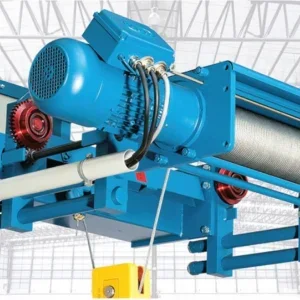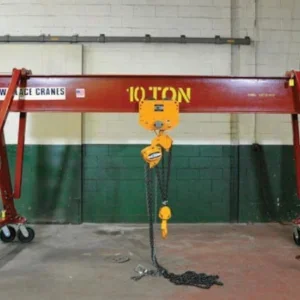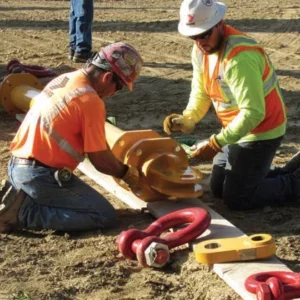“We commend Governor Newsom and the state legislature for their foresight and leadership in making this much-needed commitment to create a more resilient California freight system,” said Port of Los Angeles executive director Gene Seroka. “Continual investment in port infrastructure, sustainable technologies and jobs creation is essential to maintaining our competitiveness, now and in the future.
“Workforce development is an equally critical component of the goods movement sector,” added Seroka. “We are thrilled to have the Governor’s support of our initiative to create the nation’s first training campus to benefit our industry. The Port of Los Angeles plans to donate land and invest millions of dollars of our own capital in this facility.”
The Port of Los Angeles and the Port of Long Beach are working together to create the Goods Movement Training Campus, which will focus on worker skill development, upskilling and reskilling to address the rapidly changing needs of the logistics industry. It will also serve as an industry resource for training workers on emerging green and zero-emission technologies.
“The unprecedented supply chain challenges of the past two years have underscored the need to invest in new technology and training at our ports to keep goods moving reliably, efficiently, and safely,” said Jim McKenna, President and CEO of the Pacific Maritime Association. “The first-of-its-kind facility included in the budget signed by Gov. Newsom will give ILWU members the hands-on training they need to keep pace with evolving technologies and be fully prepared for the longshore jobs of the future.”
"The ILWU has long advocated for a training center and is grateful to the State of California, as well as the Ports of Los Angeles and Long Beach, for answering the call with this historic investment,” said Ramon Ponce de Leon Jr., International Longshore and Warehouse Union Local 13 President. “The members of our Union have adapted to new technologies and have helped shape training programs since our inception in the 1930s. With this important announcement, we look forward to training future generations to be productive employees on our working waterfront.”
“With the State of California allocating $110m to the Goods Movement Training Campus, we have a golden opportunity to retrain, upskill, and create career pathways into family sustaining union jobs for our region’s underserved communities,” said Ron Herrera, president, Los Angeles County Federation of Labor, AFL-CIO. “This ignites economically equitable opportunities for a region that needs practical, real world solutions for working families.”
In addition to the training campus investment, the Governor’s $2.3 billion plan for ports includes:
- Port Infrastructure and Goods Movement: $1.2 billion for port-related projects that increase goods movement capacity on rail and roadways serving ports and at port terminals, including railyard expansions, new bridges and zero-emission modernization projects.
- Zero-Emission Equipment and Infrastructure: $760 million for zero-emission equipment and vehicles, including human-operated zero-emission port equipment, short-haul (drayage) trucks and infrastructure.
- California Containerized Ports Interoperability Grant Program: $30 million to be used by the Governor’s Office of Business and Economic Development to fund operational and process improvements at ports. Grants will focus on enhancing goods movement, reducing congestion, improving data interconnectivity between ports, and creating opportunities to increase cargo volumes by promoting and building supply chain efficiencies.
- Commercial Driver’s Licenses: $40 million to enhance California’s capacity to issue Commercial Driver’s Licenses, allowing for more truck drivers to serve the San Pedro Bay port complex.






